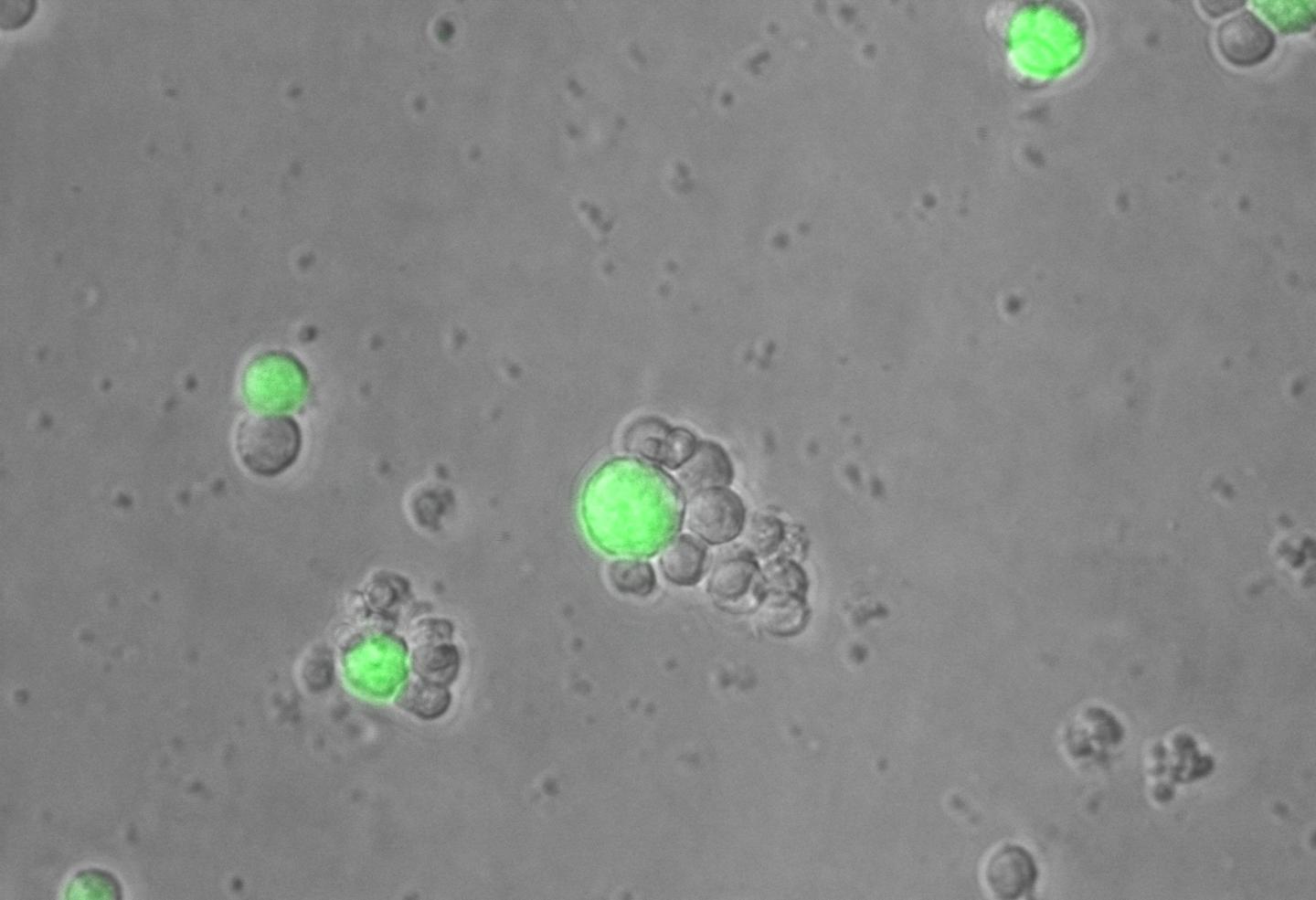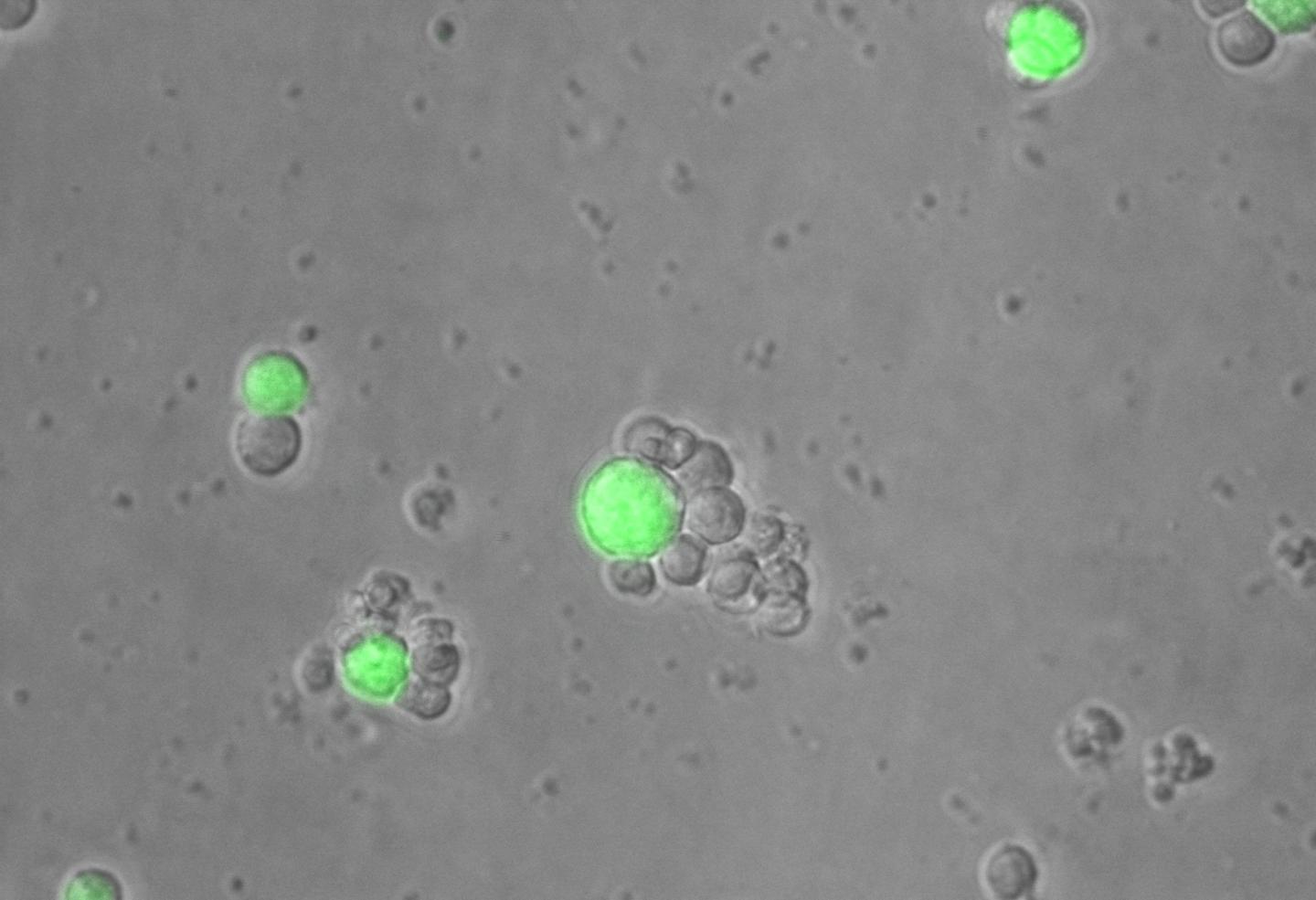
Credit: IDIBELL
Researchers of the Cancer Virotherapy Research Group of Bellvitge Biomedicine Research Institute (IDIBELL), led by Dr. Ramon Alemany, have developed an oncolytic virus capable of redirecting the patient's immune system against their tumor cells. Their work, published in the Cancer Research journal, may lead to the development of new therapeutic strategies for several types of cancer.
"We work with oncolytic adenoviruses, viruses that are modified to exclusively attack cancer cells without attacking normal tissue, like a targeted therapy", explains Carlos Fajardo, lead author of the study. Adenoviruses are a family of viruses that can cause colds, conjunctivitis or gastroenteritis. However, these viruses, once modified to acquire selectivity towards tumor cells, have great potential to be used as cancer therapy.
There are several limitations in this field; one of them is our own immune system, which recognizes the virus as a pathogen and therefore attacks it. "What we are trying to do is redirect the immune system to attack the cancer cells instead of the virus. In this way, we not only prevent the virus from being eliminated from the organism too soon, but complement its action by adding that of T lymphocytes", says Fajardo.
To achieve this, the researchers used the newly developed BiTE antibodies (bispecific T-cell engager antibodies). These antibodies are capable of specifically connecting T lymphocytes with some proteins expressed on the surface of cancer cells; this connection activates the T cell, which then attacks and destroys the tumor cell.
"We modified the virus so that when it infects the tumor cell, it secretes a specific BiTE against the EGFR protein, which is overexpressed in many types of cancer". In in vitro studies, the research team found that these BiTEs were able to capture the T lymphocytes present in the medium to attack adjacent cancer cells. In addition, mouse studies demonstrated that the virus armed with BiTE were able to increase the presence of T lymphocytes in tumors, resulting in improved antitumor efficacy.
At the moment virotherapy in cancer is a very active field in research thanks to the advances in immunotherapy developed in recent years. "With these results, we will try to attract the interest of the companies that develop BiTEs to establish collaboration agreements for the clinical development of viruses armed with BiTEs," added Dr. Alemany, the last author of the study. "We are also exploring the development of viruses that target T lymphocytes against tumor stroma fibroblasts to eliminate them".
###
Media Contact
Gemma Fornons
[email protected]
0034-638-685-074
@idibell_en
############
Story Source: Materials provided by Scienmag





